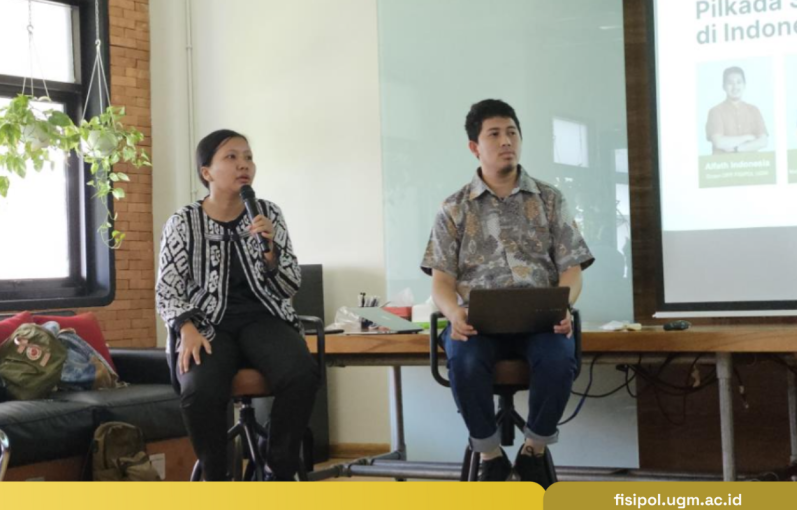
Yogyakarta, 5 March 2025–After passing through a democratic party over the past year, Indonesia has experienced a dynamic political movement. At the same time, Election Corner Fisipol UGM released a new research titled “Coalition Map of 2024 Simultaneous Regional Election Winners in Indonesia”. This research reveals the political dynamics in the 2024 Simultaneous Regional Head Elections (Pilkada) held throughout Indonesia. The main finding of this research highlights the trend of minimal electoral competition due to the dominance of large coalitions.
The event was opened with a presentation by Akhmad Fadilah Santoso, the lead researcher, who emphasized the essence or purpose of the research to analyze political dynamics related to the implications of the national winning coalition for local democracy in the regions. Based on election result data from 545 regions, more than 75% of areas have winners that can be predicted from the beginning. The winning coalition is dominated by two primary forms: minimally winning coalition and surplus majority coalition. This indicates the phenomenon of uncontested elections due to the dominance of large coalitions, which can impact electoral democracy and leadership accountability in the regions.
“Surplus majority and minimum winning coalition dominate on all islands. So most of the election winners in Indonesia can already be known since the pre-election stage,” said Fadil in his presentation.
The abuse of ASN and APH also indicates the lack of political competition, which weakens leadership accountability. At the event, Alfath Indonesia (UGM DPP Lecturer) and Tri Noviana (LKiS Foundation Program Manager) also enriched the discussion by looking at the increasingly expensive cost of vote buying. This also affects the uncontested election because it aims to secure victory by spending cheaper political costs. After all, the candidate is only a puppet.
“The uncontested election phenomenon is rampant when everything related to the election has been completed before the day of the event. This is considered an effort to secure victory at a cheaper political cost. Why should I bother fighting when everything can be done at the beginning,” Alfath explained in response to the research results.
This research will increase public awareness of the importance of political participation and choosing qualified leaders. With the coalition map release event, Election Corner Fisipol UGM strives to achieve the 16th point of SDGs related to Peace, Justice and Strong Institutions.
